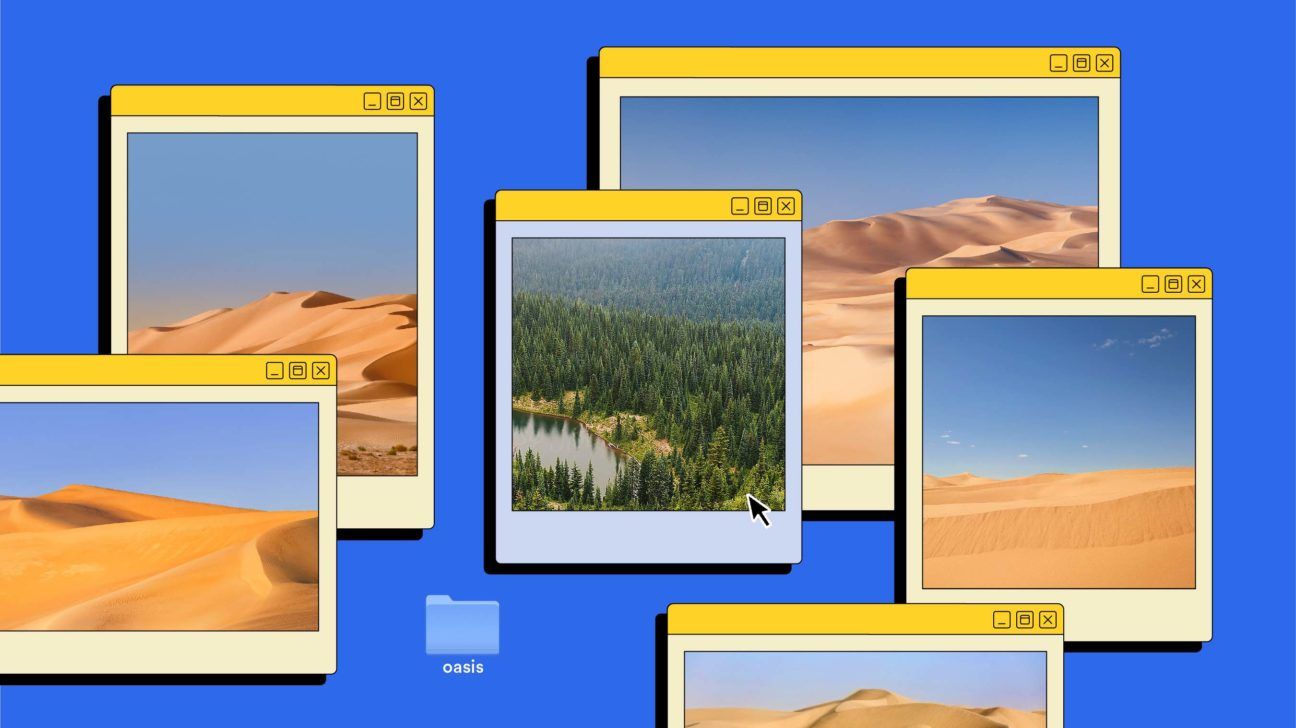
We all know someone who doesn’t know how to give up. To them, giving up is just a synonym for failure, so they don’t quit. They optimize. They analyze. They strategize in the most difficult of situations and offer up quandaries like “I just don’t see how I’m wrong.”
To the never-give-ups of the world, happiness depends on persisting while gaming the narrative in favor of them: being Nike-level fit, the Dionysus of the party, top dog at work, or wired to know it all.
Trying to do all that simultaneously, though? Damn near impossible! (Unless you’ve got intergenerational wealth — like, lots of it — and no inherited trauma).
Don’t get me wrong: Persistence is admirable, but the cycle of “never giving up” is often a trap. It’s based on goals and expectations others have set for us. It’s like trying to survive a desert without ever leaving.
The desert is, metaphorically, the narrative society tells us we should try to reach or overcome in order to be a happier/healthier/better-off person.
The desert is diet culture, hustle culture, sex-exclusive culture, pop culture, drinking culture. It’s any culture that tells us toxic suffering, be it starving our body or prioritizing career over mental health, is necessary to achieve validation.
The desert promises an oasis in the middle of acres and acres of sand. We just have to “deserve” it, the desert says.
But getting to that oasis can take years, or forever, and when we do find an oasis (love! sex! a six-figure salary!), it can be scary to leave, so we do whatever it takes to stay, even if it doesn’t make us happy or healthy.
Here’s the secret, though: We can ditch the desert. We can give up journeying through others’ expectations. We can choose how we want to live — by giving up the things that don’t work for us.
Giving up can be a good thing. It’s a sign of knowing yourself: the limits your body needs, the boundaries your brain requires, and the space your heart needs to grow.
Giving up can come unexpectedly, like the death of a good relationship because two people have exhausted the resources they have for themselves and each other. It can be devastating or bring surprising relief.
Giving up is also a synonym for freedom: letting go. Opting out. Rejecting.
Reject the situations and narratives that don’t work for you. Ask yourself what would happen if you could spot the deserts from a mile away. What if you could avoid them completely? What if you could give up the idea of searching tirelessly for that oasis and walk somewhere else entirely?
To cap off a month of new resolutions, I asked those questions to five writers who found the life-changing strength to give up — and, by doing so, grow more into themselves.
Their stories are about the transition between ditching unrealistic expectations and discovering new identities, boundaries, and freedoms. And I hope they inspire you to find that same strength in your life.
— Christal Yuen, Senior Editor
How a 1-Year Sex Hiatus Changed My Life by Abby Lee Hood
“I was turned on for the first time in months, yet I still did not crave sex.”
I once described sex to a friend as a frontier, but not all frontiers have to be explored, and this is why stories exist. From a kiss that was just a kiss to “Lucifer” and self-acceptance, Abby Lee Hood’s journey of self-discovery through abstinence is empowering.
What I Gained When I Gave Up Weight Loss by Reina Sultan
“What could you be doing instead of dieting, exercising, and thinking about food?” Reina Sultan’s answer: a sh*t ton.
It may be a cliché to include dieting, but we can’t talk about giving up without talking about diet culture. It’s the latest social trend, but it’s also so much more than that. It’s literally choosing to create a haven for your body that isn’t temporary or at the whim of others’ expectations.
How I Gave Up Tying My Identity to My Career by Sandra Ebejer
“Who are you without work?”
In 2018, the average U.S. adult spent about 8.5 hours a day at work or working, and that’s a lot of nurture time spent pleasing someone else. When she became unemployed, Sandra Ebejer didn’t know how to separate her identity from her work. This led to a journey of depression and self-reflection until she was able to let loose and embrace the fact that work is, in fact, “just a tiny aspect of our lives.”
My Mental Health Got Better After I Gave Up True Crime by Steph Coelho
“Women are more attracted to stories where women are the victims”.
What is a haunting line, on its own, and even more so in the context of entertainment. But the reality is what entertains us may also give, and perpetuate, anxiety. Steph Coelho sheds a light on how faraway realities can still affect our mental health and comes to the conclusion that sometimes it’s better not to participate in fun. Sometimes giving up what you enjoy is also healthy.
On Giving Up Alcohol to Love My Body by Roslyn Talusan
“Learning to respect my body has been absolutely critical to this process.”
How many times do we stop listening to our bodies in order to appeal to, appease, or accommodate someone else? Drinking culture, especially Western drinking culture, made it difficult for Roslyn Tasun to completely ditch alcohol. This is a story about the power of social narratives but also the deeper power of respecting ourselves.
Christal Yuen is a senior editor at Greatist, covering all things beauty and wellness. Find her musing about therapy on Twitter.
